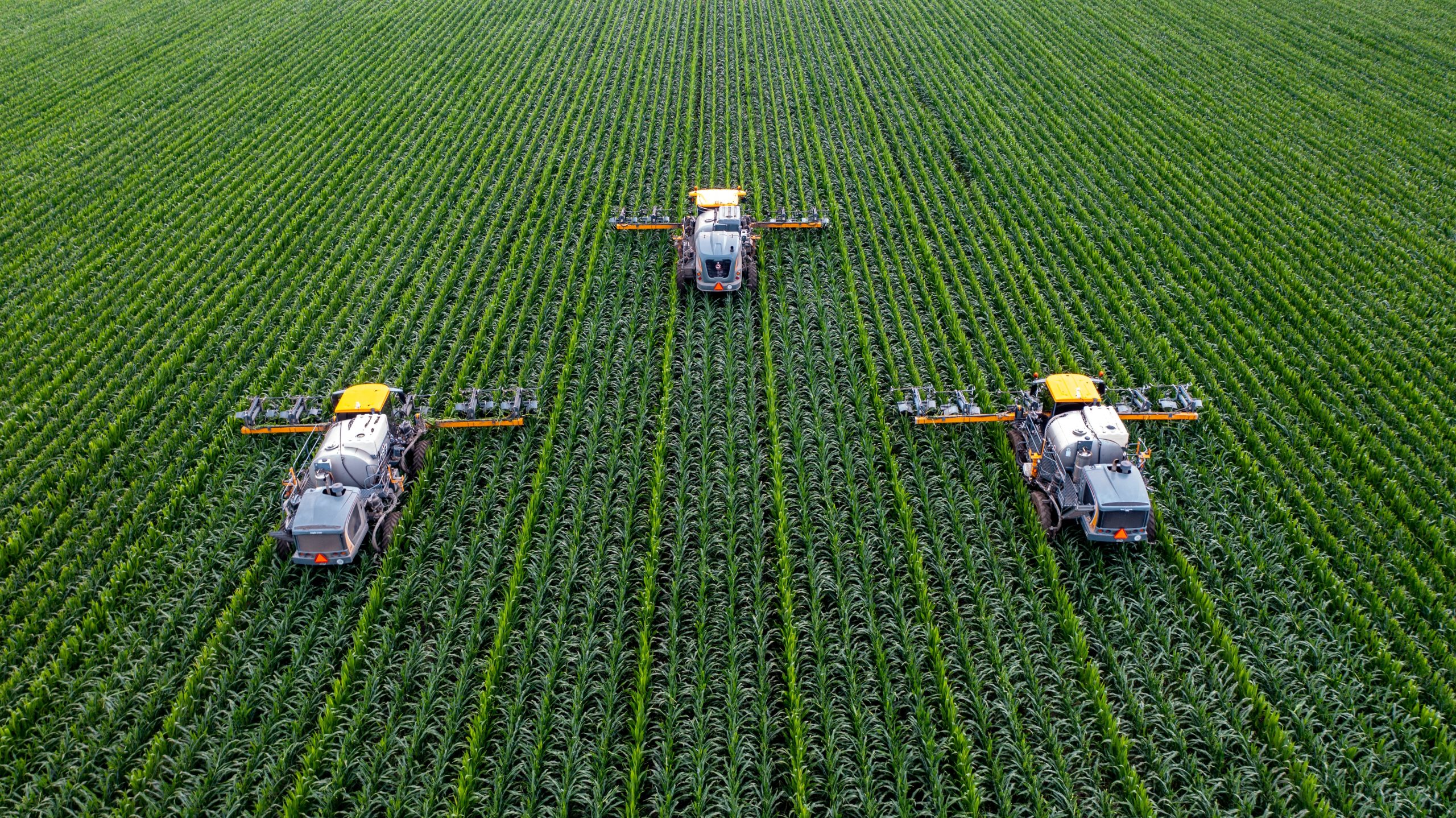Farmers need to optimize their operations to make do on slim profit margins and to make sure their farmlands are productive. In making their farmlands productive, they minimize inputs such as water, chemical fertilizers, and energy used for irrigation pumps and systems. Additionally, more farmers are working to manage carbon which is being incentivized through carbon-credit markets that are developing around the world. If that wasn’t enough, as farming advances from Agriculture 1.0 to 4.0, farmers are seeking new ways to manage all the proprietary systems in place and the data these systems produce.
‘Right to Repair’ Meets Precision Ag Technology:
The technological makeover of Agriculture 4.0 includes effectively connecting data analytics, nanotechnology, AI, blockchain, drones, and more. In order to unlock the potential of Agriculture 4.0, farmers will need to customize tractors and other equipment. Current precision agriculture solutions are typically applications of technology that are limited to specific use cases and do not provide flexibility to farmers on how they use, repair, or customize them.
Impeding the transition to Agriculture 4.0, manufacturers are incorporating technologies that only allow licensed and certified repair shops to make repairs or customizations on their equipment. This leads to delays in farmers getting their equipment to particular dealers and big-time costs associated with these forced limitations. Some frustrated farmers are hacking their equipment and looking for more open solutions.
Enter Howe Neat:
Daniel Howe runs a precision agriculture venture called Howe Neat which is providing farmers the flexibility with both hardware and software solutions that avoid the ‘right to repair’ limitations placed upon existing products and services. Howe Neat’s proposition to farmers is they pay a portion of the savings of inputs achieved by using their customized and flexible systems. Howe Neat’s position is to take a backseat to farmers so they can optimize systems themselves.
Howe Neat (recently completed Valley Ventures Cohort 6) helps farmers with sustainability efforts by minimizing farming inputs such as water, chemicals, and energy as well as helping them manage their carbon output and sequestration efforts.
How Howe Neat Works:
Howe Neat provides farmers an open platform of hardware and software called neatMon. Their systems are not a pure open-source plan as the company will not provide schematics, board design, or manufacturing information; but, the company provides an open development model based on components of open source but with some protections.
Howe Neat sells solutions to farmers in which they can swap out hardware and software of their irrigation, chemical, and monitoring systems. Farmers particularly appreciate Howe Neat’s flexibility to add improved products such as new sensors to their operations.
Flowmeters are used to make sure irrigation systems are effectively doing their job of providing water, chemical fertilizers, and acids to maintain pH balance to crops. Farmers check flowmeters to make sure the irrigation water includes the right balance of acids and chemicals to optimize products yields and Howe Neat’s systems calculate pump efficiency that can reduce the costs and the carbon that results from overusing the engines behind these irrigation systems.
Howe Neat uses 3-D manufacturing to print its products in-house. This improves logistics and allows them to produce parts that are both economical and customized. Their localized 3-D manufacturing processes also allow them to provide products that are not directly in their product mix when farmers need something specific to make a system work.
Although digital offerings can also communicate in-field operational status to farmers, farmers still need to drive around their operations to check on crops, livestock, pumps, equipment, etc. HoweNeat also works to more efficiently bridge the human-to-machine gap in managing farms to be much more efficient in terms of labor and equipment used to verify operations are running smoothly much like a check-engine light in our vehicles.
Impact:
I am heartened by Howe Neat’s efforts to allow farmers the flexibility to customize their operations. Farmers often complain about the limitations of new, closed-system solutions.
With more open systems, farmers could even share their solutions without legal risks such as voided warranties. If and when farmers create operational efficiencies that have wider market implications, they can monetize and protect these solutions. This not only helps farmers generate additional revenue streams; but, sometimes more importantly, keeps large manufacturers from lumping a farmer’s improvement into their own product offerings and then using the IP initially generated by the farmer against them.
Many precision agricultural solutions claim to save 20 percent or more in terms of inputs such as water and chemicals. If farmers are able to make these reductions, our food, water, and lands would be much more sustainable. If Howe Neat allows farmers to more flexibly deploy these technological solutions, we could expedite agriculture’s efforts to manage climate change.
As farmers begin to incorporate more clean-energy solutions including distributed energy resources (DERs), Howe Neat can provide flexible precision-agriculture technologies farmers can service and customize for their operations.
Reduced costs for farmers is how Howe Neat makes its money. Meanwhile, farmers that work with Howe Neat can increase their profits and maximize other revenue streams such as the IP they create, the transition to clean and distributed energy systems, and the sequestration of carbon in their fields.
About The Author

Jeff Macon is the venture development manager at Fresno State’s Water, Energy, and Technology (WET) Center where he supports the technology commercialization and business development of ventures providing solutions to Californians and communities beyond.

